Whats the Difference Between Super Glue and Nail Glue?
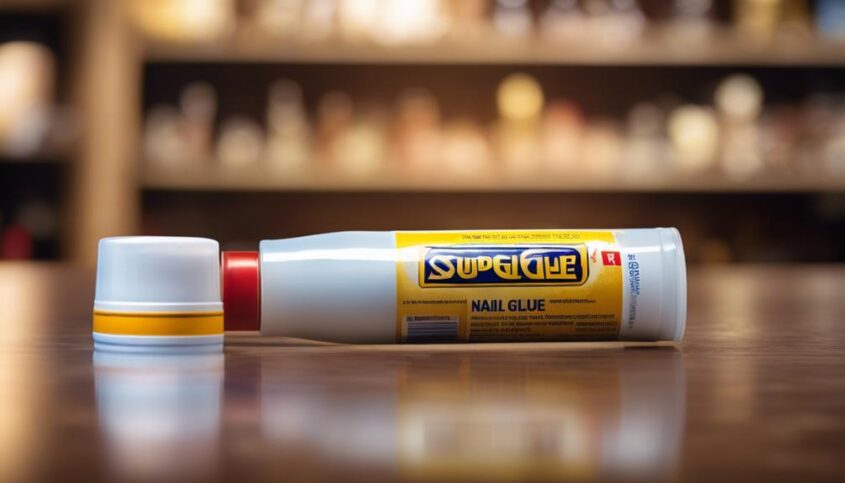
When comparing super glue and nail glue, note their different chemical compositions and bonding strengths. Super glue, with cyanoacrylate, is known for its sturdy hold on plastics and metals. Nail glue, a variation, offers a reliable but slightly weaker bond. Remember to clean surfaces before applying. Super glue dries in 10-30 seconds, quicker than nail glue's 1-2 minutes. Both glues require caution due to toxicity risks. Consider acetone for safe removal. Super glue is water-resistant, making it ideal for wet conditions. The cost-effective super glue suits versatile quick fixes, while nail glue excels in nail art.
Key Takeaways
- Super glue contains cyanoacrylate monomers, while nail glue contains ethyl cyanoacrylate.
- Super glue offers a stronger hold on materials like plastics and metals compared to nail glue.
- Super glue dries faster (10-30 sec) than nail glue (1-2 min).
- Both glues require acetone for removal and proper ventilation due to toxicity risks.
- Super glue is more water-resistant and versatile, while nail glue is best for nail art applications.
Chemical Composition
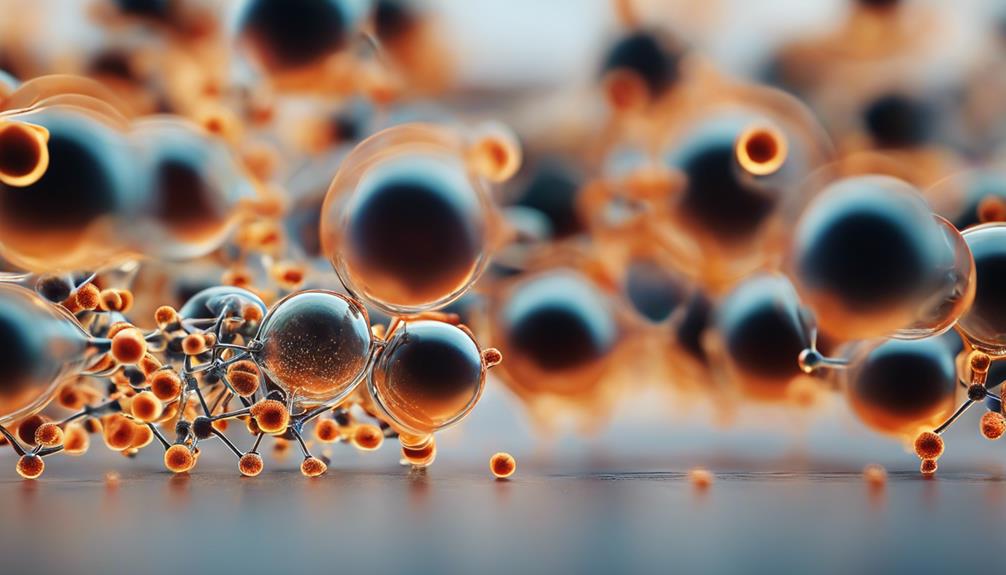
When comparing the chemical composition of super glue and nail glue, it's important to note the key differences in their adhesive properties. Super glue, also known as cyanoacrylate adhesive, is a fast-acting adhesive that forms strong bonds on a variety of materials such as metal, plastic, and wood. The main ingredient in super glue is cyanoacrylate monomers, which react with moisture to create a strong bond.
On the other hand, nail glue is specifically designed for adhering artificial nails to natural nails. It typically contains ethyl cyanoacrylate, a variation of the cyanoacrylate compound found in super glue. Nail glue is formulated to provide a secure bond for artificial nails without causing damage to the natural nail underneath.
Understanding the chemical composition of these adhesives can help you choose the right one for your needs. Whether you're looking to fix a broken item quickly with super glue or apply artificial nails with nail glue, knowing the differences in their formulations empowers you to make informed decisions.
Bonding Strength
When comparing Super Glue and Nail Glue, you'll find variations in adhesive durability and bond longevity. Understanding these differences can help you choose the right glue for your specific needs.
Let's explore how each type of glue performs in terms of bonding strength.
Adhesive Durability Difference
In comparing the bonding strength between super glue and nail glue, the adhesive durability difference becomes evident. When looking at their holding power, it's essential to consider:
- Super Glue: Known for its quick and strong bond, super glue provides a sturdy hold, ideal for various materials like plastics and metals.
- Nail Glue: Primarily designed for attaching artificial nails, nail glue offers a reliable but slightly less robust hold compared to super glue.
- Adhesive Durability: While both glues create strong bonds, super glue generally outperforms nail glue in terms of long-lasting adhesion and durability, making it a preferred choice for heavy-duty or long-term applications.
Bond Longevity Comparison
Comparing the longevity of the bond between super glue and nail glue reveals notable differences in their bonding strength.
Super glue, known for its quick-drying and strong bond, is ideal for various materials like plastic, metal, and ceramics. Its bond can withstand significant stress and is more permanent, making it great for long-term projects.
On the other hand, nail glue, specifically designed for attaching artificial nails, provides a strong but more temporary bond. It's formulated to adhere well to the nail surface but may not hold up as robustly under heavy-duty tasks.
Therefore, if you seek a lasting and resilient bond for durable projects, super glue is your go-to, while nail glue serves best for temporary or cosmetic applications.
Application Technique
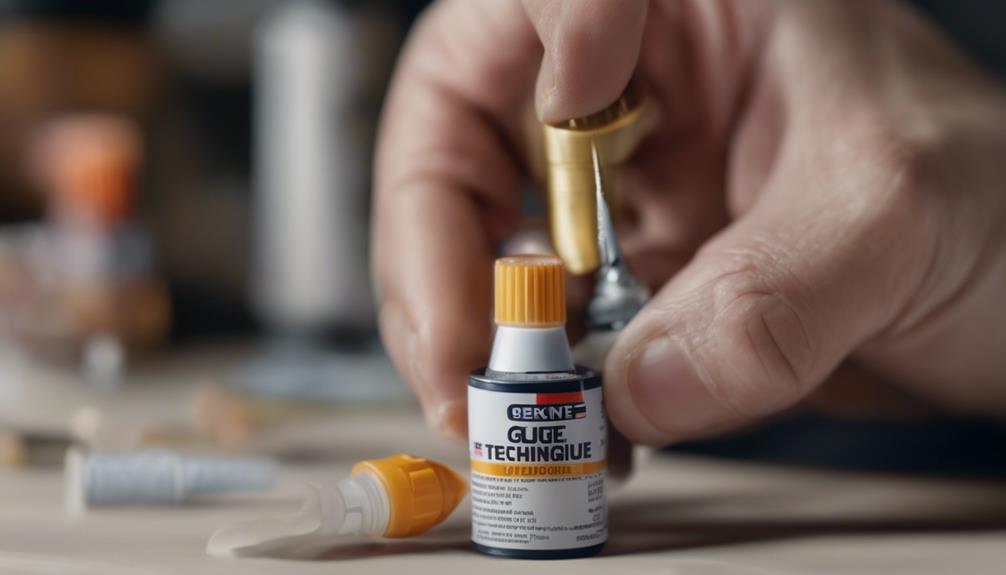
To ensure a successful application, carefully follow the instructions provided on the packaging of the glue product. When applying nail glue, here are three essential tips to help you achieve the best results:
- Clean the nail surface: Before applying the glue, ensure your nails are clean and dry. Remove any old nail polish and use a gentle nail polish remover to eliminate any oils or residue from your nails. This step is crucial for the glue to adhere properly to your nails.
- Apply a small amount: Less is more when it comes to nail glue. Apply a thin, even layer of glue to the nail, focusing on the area where the artificial nail will sit. Avoid applying too much glue as it can lead to a messy application and longer drying times.
- Press and hold: Once you place the artificial nail on your natural nail, press down gently and hold it in place for a few seconds. This pressure helps the glue bond effectively and ensures a secure attachment.
Drying Time
Ensure that the glue has fully set before exposing your nails to any pressure or moisture to prevent any disruptions in the bonding process.
Super glue typically dries much faster than nail glue, as it's designed for quick fixes and strong bonds in a matter of seconds. Nail glue, on the other hand, is formulated to allow for more flexibility in application and adjustment before it sets completely.
Super glue can dry in as little as 10-30 seconds, while nail glue may take around 1-2 minutes to fully dry. It's important to be patient and let the glue dry naturally to ensure a secure bond that will last. Rushing the drying process by using heat sources can weaken the adhesive properties.
Waiting for the glue to dry completely will help prevent any lifting or loosening of the nails later on. Remember, taking the time for proper drying will result in longer-lasting and stronger nail enhancements.
Toxicity Levels
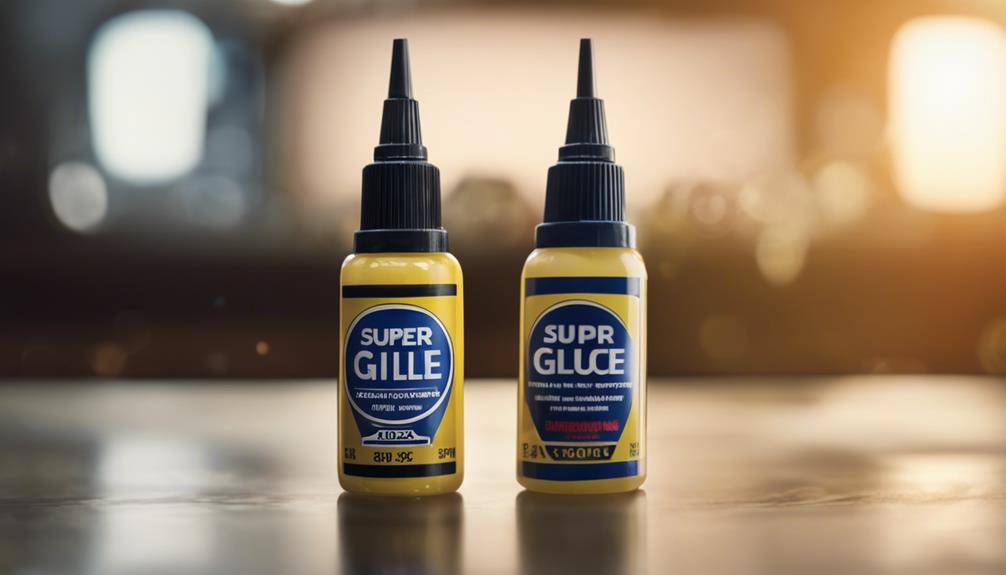
Consider the potential risks associated with both super glue and nail glue by understanding their toxicity levels. Super glue and nail glue can pose risks due to their toxic nature. Here's what you need to know:
- Ventilation is Key: When using these adhesives, ensure you're in a well-ventilated area. Proper airflow can help reduce the chances of inhaling harmful fumes.
- Avoid Skin Contact: Both super glue and nail glue can cause skin irritation or allergic reactions. Be cautious not to get the glue on your skin and if it does happen, remove it promptly.
- Contact Poison Control if Ingested: Ingesting these glues can be dangerous. If accidentally swallowed, contact poison control or seek medical help immediately. It's crucial to act fast in such situations to prevent further harm.
Being aware of the toxicity levels of these adhesives allows you to take necessary precautions and ensure your safety while using them.
Flexibility After Drying
After drying, Super Glue tends to be rigid, offering a strong bond but limited flexibility.
On the other hand, Nail Glue is designed to maintain a certain degree of flexibility post-drying, catering to the movements and everyday use nails endure.
Understanding these differences can help you choose the right adhesive for your specific needs.
Super Glue Stiffness
When Super Glue dries, it typically becomes rigid, lacking flexibility. But hey, don't worry if you're all about freedom of movement! Here's what you need to know about Super Glue stiffness:
- Stiffness: Super Glue hardens into a stiff and rigid bond once it dries, making it ideal for strong and durable repairs.
- Limited Flexibility: Due to its rigid nature, Super Glue doesn't offer much flexibility after drying, so it's best suited for applications where flexibility isn't a priority.
- Precision Bonding: The stiffness of Super Glue allows for precise bonding in delicate or small-scale projects, ensuring a secure and long-lasting hold.
Nail Glue Flexibility
Nail glue maintains a level of flexibility even after drying, allowing for comfortable and natural movement of the nails. Unlike super glue, which can harden to a stiff finish, nail glue provides the freedom to bend and flex your nails without fear of cracking or breaking.
This flexibility is essential for everyday activities, ensuring that your manicure remains intact while still allowing you to use your hands without restrictions. Whether you're typing on a keyboard, opening bottles, or simply going about your day, nail glue's ability to move with your nails enhances comfort and durability.
Removal Process
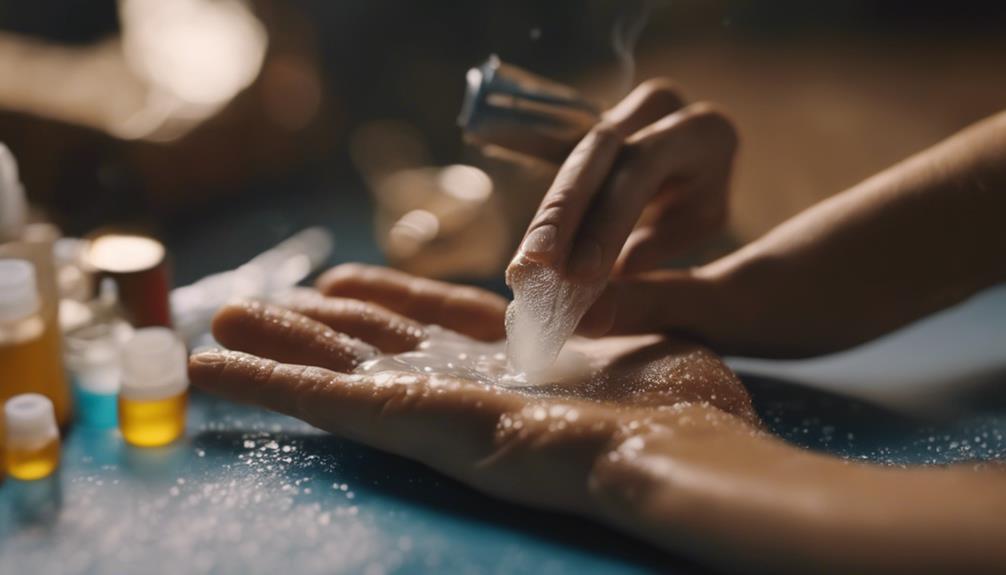
To remove super glue or nail glue from your skin or surfaces, follow these simple steps:
- Acetone Solution: Soak the bonded area in an acetone-based solution. Acetone helps break down the glue bonds, making it easier to remove. You can use nail polish remover that contains acetone for this purpose.
- Gentle Scrubbing: After soaking the area, gently scrub it with a soft brush or cloth. Avoid using harsh abrasives that may damage the skin. Continue scrubbing until the glue starts to loosen and peel off.
- Warm, Soapy Water: Once most of the glue is removed, wash the area with warm, soapy water. This will help get rid of any remaining glue residue and cleanse the skin or surface thoroughly.
Following these steps will help you effectively remove super glue or nail glue without causing harm to your skin or surfaces. Remember to take your time and be gentle to avoid any unnecessary irritation.
Resistance to Water
When it comes to water resistance, super glue tends to be more durable than nail glue.
You'll find that super glue holds up better when exposed to moisture, making it a reliable choice for projects that may encounter water.
Understanding this distinction can help you select the right adhesive for your specific needs.
Water Resistance Comparison
In terms of water resistance, Super Glue generally outperforms Nail Glue due to its stronger bonding properties. When comparing the two adhesives in water-related scenarios, here's what you need to know:
- Longevity: Super Glue forms a durable bond that's less likely to break down in water compared to Nail Glue.
- Versatility: Super Glue can be used for various water-related repairs, such as fixing leaks or sealing objects underwater, offering more flexibility.
- Quick Action: Super Glue sets rapidly even in wet conditions, making it a reliable choice for urgent water-resistant bonding needs.
Choosing Super Glue over Nail Glue can provide you with more freedom and reliability in water-exposed situations.
Durability in Moisture
For enhanced durability in moisture, consider the superior water resistance properties of Super Glue compared to Nail Glue. Super Glue, known for its strong bond, is formulated to withstand various conditions, including exposure to water. This feature makes it ideal for projects that may come into contact with moisture or wet environments. On the other hand, Nail Glue, primarily designed for artificial nail application, may not hold up as well when exposed to water, leading to potential loosening or weakening of the bond. Below is a comparison table highlighting the differences in moisture resistance between Super Glue and Nail Glue:
| Durability in Moisture | Super Glue | Nail Glue |
|---|---|---|
| Water Resistance | High | Moderate |
| Ideal for Wet Environments | Yes | No |
| Bond Strength in Water | Strong | Weaker |
Cost Comparison
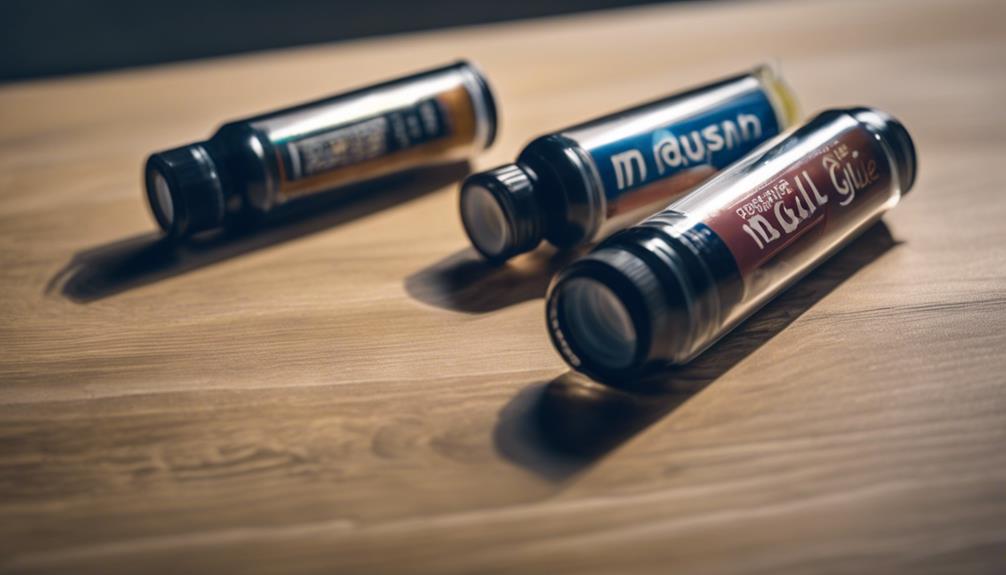
Opt for the more economical option between super glue and nail glue for your DIY projects to save on costs. When comparing the cost of super glue and nail glue, consider the following:
- Price per Quantity: Super glue is generally more cost-effective than nail glue. You can often find larger quantities of super glue for a lower price compared to nail glue, which tends to come in smaller bottles at a higher cost per ounce.
- Versatility: Super glue can be used for a variety of materials and applications, making it a versatile and budget-friendly option for various DIY projects. On the other hand, nail glue is specifically designed for attaching artificial nails and may not be as versatile for other uses.
- Longevity: While both super glue and nail glue offer strong adhesion, super glue tends to have a longer shelf life once opened. This means you can use super glue for multiple projects over time without it drying out as quickly, providing better value for your money.
Recommended Uses
When considering the optimal applications for super glue and nail glue, assess the specific needs of your project to determine which adhesive will deliver the best results.
Super glue, known for its strong bonding capabilities, is ideal for quick fixes on a variety of materials such as metal, plastic, rubber, and wood. Its fast-drying formula makes it perfect for small repairs and bonding projects where a rapid set time is essential.
On the other hand, nail glue, formulated specifically for attaching artificial nails, is best suited for nail art and manicure applications. Its gentler formula is designed for use on nails and skin, providing a secure bond without damaging the natural nail bed.
If you're looking to repair household items, craft projects, or DIY repairs, super glue is your go-to adhesive. However, if you're focusing on nail enhancements or nail art, nail glue is the preferred choice for achieving beautiful and long-lasting results.
Choose wisely based on your project needs for the best outcome.
Frequently Asked Questions
Can Super Glue Be Used as a Substitute for Nail Glue?
You can use super glue as a substitute for nail glue, but be cautious. Super glue may be too strong for delicate nail applications and could damage your nails. Always test in a small area first.
Will Using Nail Glue Instead of Super Glue Affect the Durability of the Bond?
Using nail glue instead of super glue may affect the bond's durability. Nail glue isn't always as strong for non-nail applications. To ensure lasting results, stick with super glue for non-nail uses.
Is There a Difference in the Drying Time Between Super Glue and Nail Glue?
When using super glue or nail glue, you'll notice a speedy dry time with super glue, making it a quick fix. Nail glue may dry slower, so be patient for best results. Remember, good things come to those who wait!
Are There Any Specific Safety Precautions to Keep in Mind When Using Super Glue or Nail Glue?
When using super glue or nail glue, always prioritize safety. Keep both out of reach of children, avoid contact with skin and eyes, work in a well-ventilated area, and consider using gloves for extra protection.
Can Super Glue and Nail Glue Be Used Interchangeably for Different Types of Materials Besides Nails?
When using super glue and nail glue interchangeably for different materials, remember that each adhesive has specific purposes. Experiment cautiously. Super glue is versatile but may not be ideal for all nail applications. Nail glue is formulated for better adhesion on nails.




